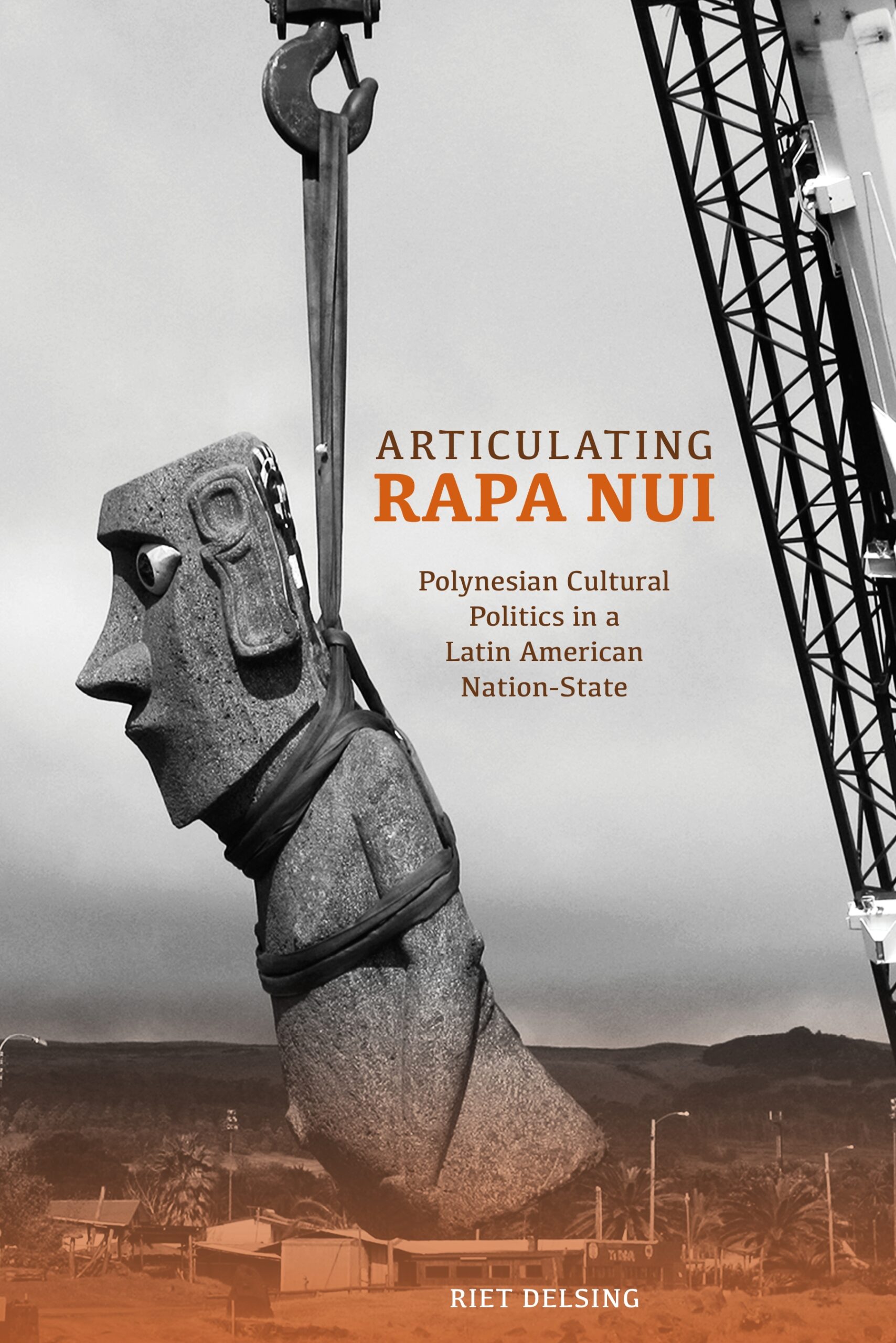Articulating Rapa Nui: Polynesian Cultural Politics in a Latin American Nation-State
- About the Book
-
In this groundbreaking study, Riet Delsing narrates the colonization of the Pacific island of Rapa Nui and its indigenous inhabitants. The annexation of the island by Chile, in the heydays of world imperialism, places the small Latin American country in a unique position in the history of global colonialism. The analysis of this ongoing colonization process constitutes a “missing link” in Pacific Islands studies and facilitates future comparisons with other colonial adventures in the Pacific by the United States (Hawai‘i, American Samoa), France (Tahiti), and New Zealand (Maori and Cook Islands).
The first part of the book surveys the history of the Chile–Rapa Nui relationship from its beginning in the 1880s until the present. Delsing delineates the Rapanui people’s agency along with their cultural logic, showing their resilience and will to remain Rapanui— indigenous Pacific islanders rather than an ethnic minority forcefully integrated into the Chilean nation-state. In the second part, the author describes the Rapanui’s contemporary emphasis on the revitalization of their language, traditional concepts about land tenure, a unique corpus of material and performative culture, renewed contact with other Pacific island cultures, and creative acts of resistance against Chilean colonialism. Emergent in her analysis is the effect of Rapa Nui’s vibrant tourist industry—commodification of Rapanui difference is creating the possibility to loosen economic and political ties with Chile.
Drawing on statements of several Rapanui, she concludes that over the past few decades they have acquired a different kind of interpretive power, based on which they are making choices that serve them as a people on the road to cultural and political self-determination. Contemporary Rapa Nui is thus a modern, articulated place, marked by spirited identity politics that show the resilience and adaptability of the indigenous people who inhabit this island.
- About the Author(s)
-
Riet Delsing, Author
Riet Delsing is a Dutch anthropologist who spent most of her professional life in Santiago, Chile. She earned a PhD in anthropology from the University of California, Santa Cruz.
- Reviews and Endorsements
-
- Articulating Rapa Nui is a fundamental work for understanding the recent political history of Easter Island, especially for the post-1980 period, the contemporary conflicts about land ownership, and the discussion of a political autonomy project.
—Rapa Nui Journal - For an appreciation of how the descendants of the original Polynesian settlers of circa 1000 CE developed political and cultural strategies to withstand foreign influence, this book is a must. Tourists, especially, will greatly benefit from reading this volume. . . . Essential
—CHOICE - Articulating Rapa Nui is doubtless the finest anthropological summary of the current Easter Island situation. Steeped in all the relevant theoretical literature, especially in that which concerns the greater Pacific, the book is nevertheless imbued with the Rapa Nui perspective as well. Exhaustive without ever becoming exhausting, this work will stand as the definitive cultural-political analysis of Easter Island for a generation.
—Steven Roger Fischer, author of Island at the End of the World: The Turbulent History of Easter Island - Articulating Rapa Nui brings “Easter Island” out of the mists of exoticism and into the Twenty-First Century. All the critical issues facing indigenous societies in a globalizing world are engaged. Writing with historical realism and without premature closure, Delsing skillfully navigates the cross-currents of local, regional, transnational, and Chilean national aspirations. She sustains an exemplary, historically grounded, account of the entangled politics of “sovereignty” today. Looking beyond a single island, her analysis resonates with the ongoing struggles of small societies over autonomy and difference in contradictory, transforming contexts.
—James Clifford, author of Returns: Becoming Indigenous in the Twenty-First Century - With a focus on the complexity of cultural politics, Riet Delsing deftly shows how the terrain of identity is central to enduring contestations over self-determination and sovereignty on the island of Rapa Nui - at the crossroads between Latin America and Polynesia. Based on extensive ethnographic research and critical discourse analysis, this book is a rich and rigorous examination of the Rapanui people’s political and cultural resistance to Chilean colonization and attempts at forced integration. Attentive to myriad forms of indigenous agency in relation to structural dominance, including the commodification of difference through a tourist industry anchored in the global economy, the author reveals how Rapanui people are expanding prevailing notions of decolonization while navigating their place within Oceania as indigenous people of the Pacific.
—J. Kēhaulani Kauanui, associate professor of American studies and anthropology, Wesleyan University
- Articulating Rapa Nui is a fundamental work for understanding the recent political history of Easter Island, especially for the post-1980 period, the contemporary conflicts about land ownership, and the discussion of a political autonomy project.
- Supporting Resources
-





